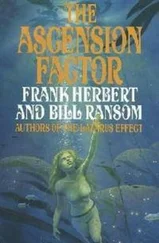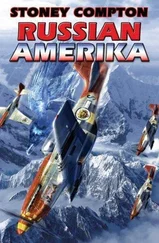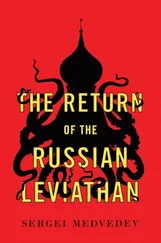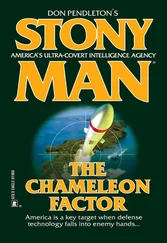* * *
When I awoke, Shadow was adrift in bright sunshine and sweltering heat. Anna was sound asleep on the opposite bench. “Hey! Are we at anchor?”
Sitting up and scrambling out of my sweat soaked rain gear, I tried to get my bearings. Nothing but sea. The reefed sails slapped back and forth and lazy waves slopped randomly under the yacht’s sugar-scoop stern. I couldn’t believe that I’d actually slept in that configuration. My subconscious must have assumed the boat was under control. “Holy kapoosta! how long have you been asleep?”
“I don’t know. Where are we?”
“That’s what I’d like to know.” I felt my cheeks flush. “You left us drifting? We’re out of control! We could’ve been smashed on the rocks, or run aground, or hit by a ship.”
“There were no ships. Nothing was happening. Karpathos ended and we were drifting away from it. I thought it was safe to sleep.” Anna rubbed her eyes, flinching when she touched the sunburned side of her face. “I never meant to sleep more than a few minutes.”
“What do you mean, ‘Karpathos ended’?”
“We passed it. It finished.”
“And what about Kasos, the next island?” I asked.
“I didn’t see it. On radar I saw we were drifting further from it. I couldn’t see anything in the dark. There was no wind. Nothing, and the waves were better. The boat wasn’t sailing, just drifting, I couldn’t even steer, so I lay down.”
There truly was no wind. The boat rocked in place gently. In reality I was more than happy to take advantage of the unexpected calm to fire off an email to Tom. He’d promised to talk — or text — me through the voyage, to be my mentor, so to speak. My first satellite missive conveyed our coordinates and copious complaints about winds, flooding and equipment malfunction.
Adrift somewhere east of Crete, we set to work cleaning up and dealing with the leaking deck. Harvey’s workers had drilled seemingly random holes in it causing points of water ingress. We only discovered them when the deck was awash with breaking waves.
Becalmed, the boat drifted slowly with the current southeast though international waters. The charts placed us nowhere near land or the shipping lanes, so we packed the sails and took advantage of the lull to repair and regroup. Tom wasn’t as fond of our aquatic lounging as we were. His textual satellite messages conveyed his worry about our drifting too close to potentially unfriendly countries and giving up way too soon.
I insisted on one of us always being awake and since Anna was afraid of sailing alone in the dark, I got the night watches. The night sky thrilled me, and I lay on my back watching the stars and listening for the phantom rogue freighter I was sure was about to run us down.
After a couple of weeks of drifting, acclimatization, and relaxation — just another word for intense boredom — the sky turned brown and the wind came up. Sailing began in earnest. With astonishing speed the brown sky descended and turned into a full blown dust storm out of Egypt.
“People sail on purpose, you mean, for fun ? This isn’t funny, it’s awful. I’m eating sand, shaking it out of my ears. We can’t see anything, the waves are huge. There’s mud everywhere. Why would anyone do this?” Anna was not a happy cruiser.
“Nobody does this on purpose… unless there’s no other choice.” Grinding a salty mud encrusted rope through a winch, I made a quick adjustment. “Yep, we’re blowing black snot now. That’s the best kind. On the farm, Dad used to say black snot meant you were working hard.”
“That’s disgusting.”
“That’s sailing. I didn’t know we’d get a dust storm at sea. Didn’t know you could get a dust storm at sea.”
When the scorched winds off the Sahara succumbed, a week and a half later, to some blustery Mediterranean wind of lore, we were somewhere off the south coast of Sicily. Unfortunately, the new wind relentlessly prevented Shadow from sailing west. “Fighting uphill, beating into a gale,” the sailors call it, “Bloody useless head bashing!” I called it and turned us around after several fruitless and conflict ridden attempts to make headway. Nothing weather-wise predicted when that wind would relent, so the Strait of Sicily was no longer an option in my books.
By giving up the fight with that particular wind and heading north I was counting on Sicily itself to provide a wind break. Tom didn’t bother hiding his concern or displeasure with my change of course. Sailing through the densely populated and highly patrolled Messina strait between Italy’s big toe and Sicily’s northeast corner was something he considered reckless and risky.
I was beginning to think any change we made in the plans, meticulously laid in Marmaris, pissed him off. His emails were taking on a decidedly ranting tone so I ignored them. We faced either a head-on constant gale in the shallow water of the Strait of Sicily or Tom’s electronic griping. Email can be ignored, weather can’t. At the time, countries and coast guards were reacting to the relentless tide of illegal immigration and smuggling. I finally told Tom we were taking on the Messina strait when we were sailing north past Mount Etna. Too late to turn back — we were committed to the strait — like it or not.
A hot dry headwind had us tacking back and forth between Sicily and Italy. Boxy faded pastel buildings on the Italian side exuded all the charm of cell-blocks, while up to a mile from shore jet skis and windsurfers jousted with us. There were some close calls accompanied by shouted Italian language lessons. I’m guessing it wasn’t the kind of language you’d use at the dinner table.
The sun was setting by the time we zigzagged our way into the narrowest part of the strait. Rusting ferries zipped back and forth along seemingly random trajectories while freighters and oil tankers endlessly line danced in the center of the channel. Their combining wakes churned up rogue waves smacking Shadow off course, while a strong current from the north did its best to flush us back into the Ionian basin. Newly honed sailing skills aside, we both had it. Time to fire up the engine and clear out of the strait before we got run over.
We were getting tossed around in the pitch dark, nasty chop and tidal currents when the autopilot self destructed with a stuttering grinding groan.
“Jeeeeeeeess?”
“Oh, what now!” We were so close to leaving the strait. Open water was right in front of us. I was so looking forward to standing down from high-alert.
“I think there’s something wrong with the autopilot.”
I poked at it. It caught, ran for a second or two, beeped a complaint and died. The boat, running under motor, burning up precious fuel, meandered off on its own trajectory. “Well, shit!”
The first sign its demise was going to be more than an inconvenience was raising the sails alone while Anna steered. Without the autopilot one of us was condemned to the exposed cockpit at all times. We shortened our watches, sleeping more often, but with less effect. Anna was, by then, competent in routine control of the yacht and agreed to take the night watches. While she steered, I crawled through lockers and access ports below the cockpit floor. Regardless of how much skin I left behind and bruises I added to my already impressive collection, I was unsuccessful in my quest to jury rig the autopilot. But eventually, covered with grease and mad as hell, I’d at least diagnosed the problem as failed electrical brushes in the hydraulic pump motor.
One of Harvey’s contraptions, an avant-garde metal sculpture called a wind vane self steering system , saved the day. In Marmaris I’d hated seeing Shadow’s clean racing lines broken up by what looked like a Mad Max fantasy gizmo bolted to the back end of a decent looking sleek white boat. But Tom insisted and I’d acquiesced. That it would actually work and steer the boat according to the wind, was something I never would have believed. “Ugly but effective.”
Читать дальше












